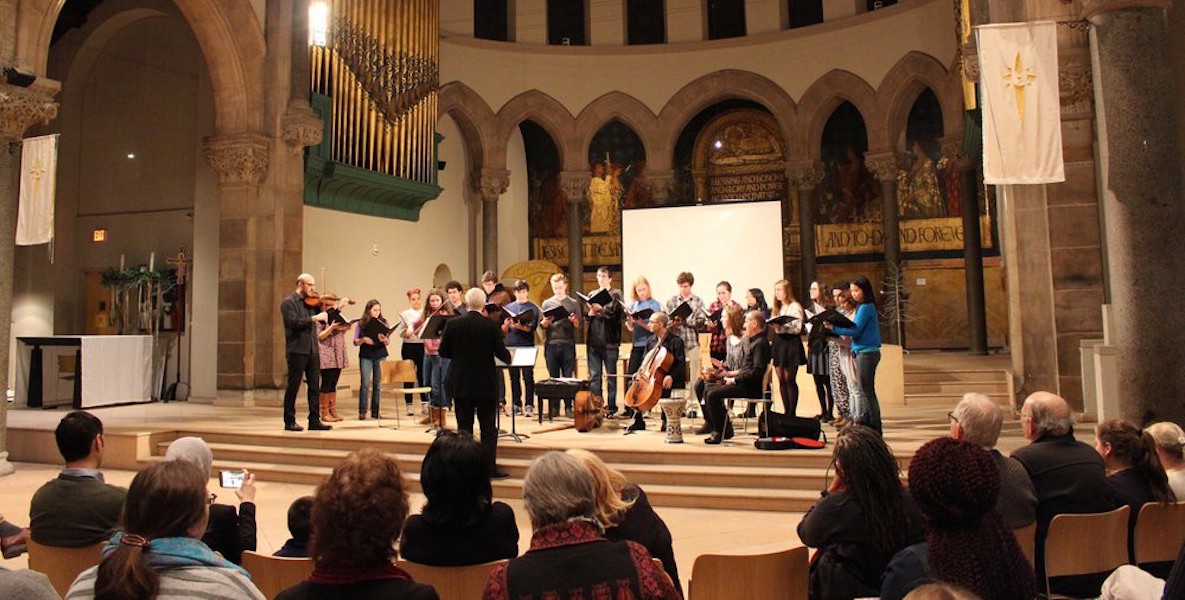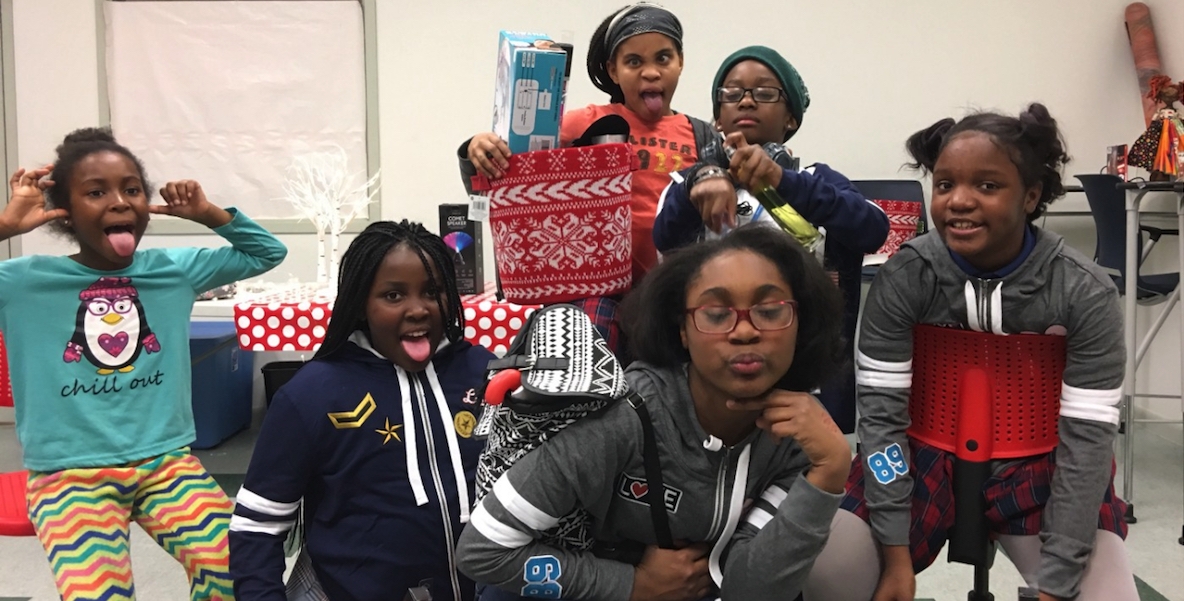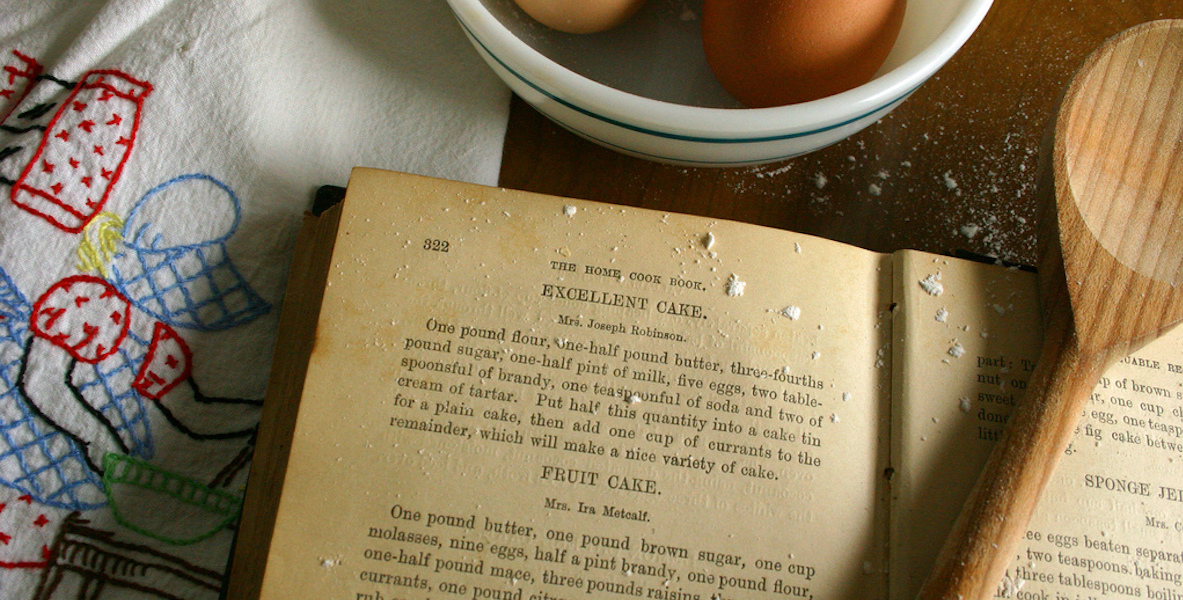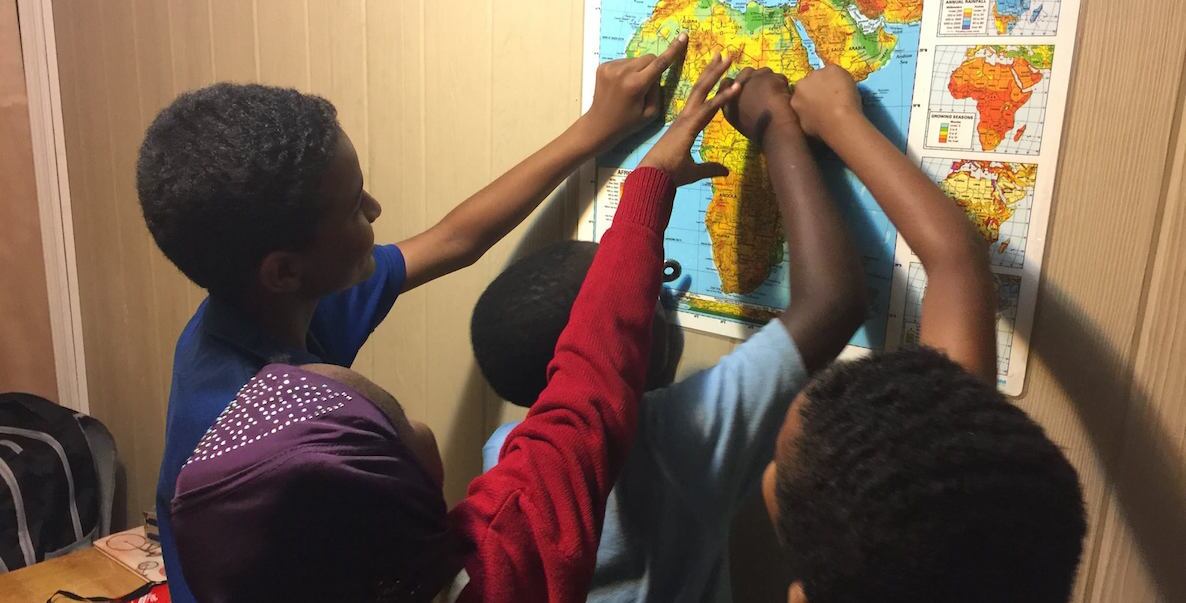In the long, finished basement of a West Philadelphia row home near the 52nd Street Free Library, Penn scholar Aminata Sy tries to corral four students who have withdrawn to the back room. The oldest is a middle-school student busy with an assignment for school: translating Chapter 1 of his novel from Arabic into English.
On the other side of the basement, by the front door, another middle-school student adds facts to her poster about the star constellation Sagittarius, outlined in gold and silver glitter, some of which sparkles on her cheek. Between the two poles, a dozen other children and two volunteer tutors consider the idea of home.
Sy told Michel Liu of The Daily Pennsylvanian that she started the African Community Learning Program in the Fall of 2017 after meeting a child who was ashamed of having been born in Africa.
“The reason why so many African immigrant children carry a burden of shame is a layered issue,” she said. “I think media’s representation of one ‘story’ of Africa — of hunger, disease and chaos, conditions that exist all around the world — lead African children to internalize these messages. I think a limited school curriculum about Africa also contributes to this.”
Home for these students, who come from many different countries, is a complicated idea. They navigate it by helping and kibitzing each other.
“Do you mean the number of the house where I live now?”
“No, she wants to know your home.”
“Well, that’s Senegal …”
“Or is it Senegal and America?”
A girl who took careful photos to accompany this story says that she loved the food in Senegal and the clothing. She loved speaking French and Wolof, “and three other languages; but I don’t know the names of them in English.” Which is when Sy comes to help her transliterate.
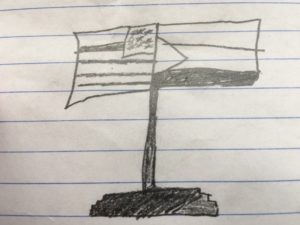
Another writes that Burkina Faso felt busy.
For the younger ones, the question of home matters less. “Home is here! I live here, right?” one boy says impatiently.
Asked about foods, an elementary-school boy rubs his hand through his hair. “Any food? Any food can be my favorite? Does it have to be from home? Can it be pizza?”
They play around with haikus, but find that the memories require more syllables and narrative. A boy from Sudan says that his best memory of that country is going to a wide-open park with his grandmother. He smiles, eyes cast down, remembering. “She bought me ice cream.”
His page, listing his languages — Arabic and English — and thoughts about home, included a spontaneous illustration that speaks for so many: a single pole with an American flag on one side and the flag of Sudan on the other.
Even while pursuing her own education at Penn, Aminata Sy is giving children a way to understand their lives as American Africans in their new home. She even gives them a pledge!



